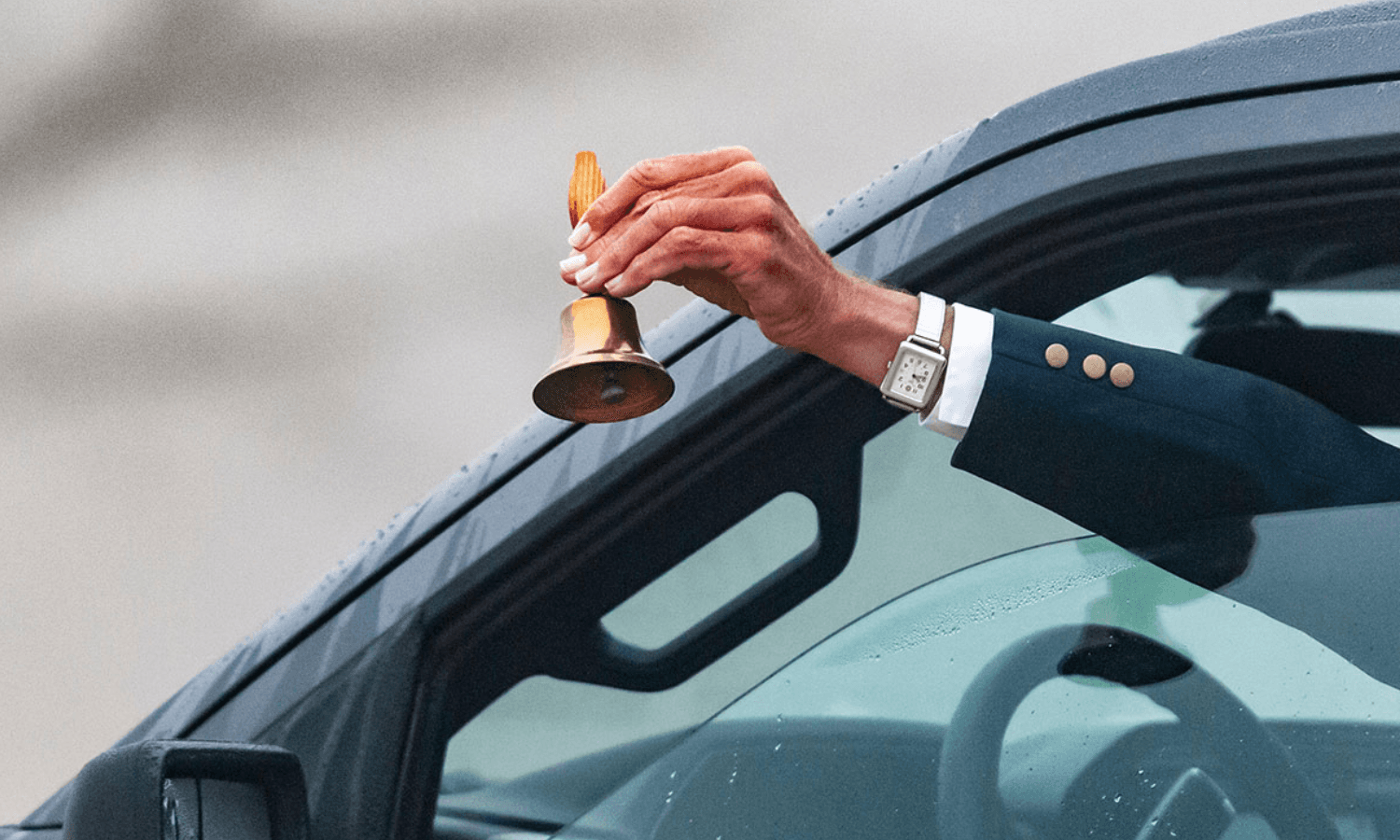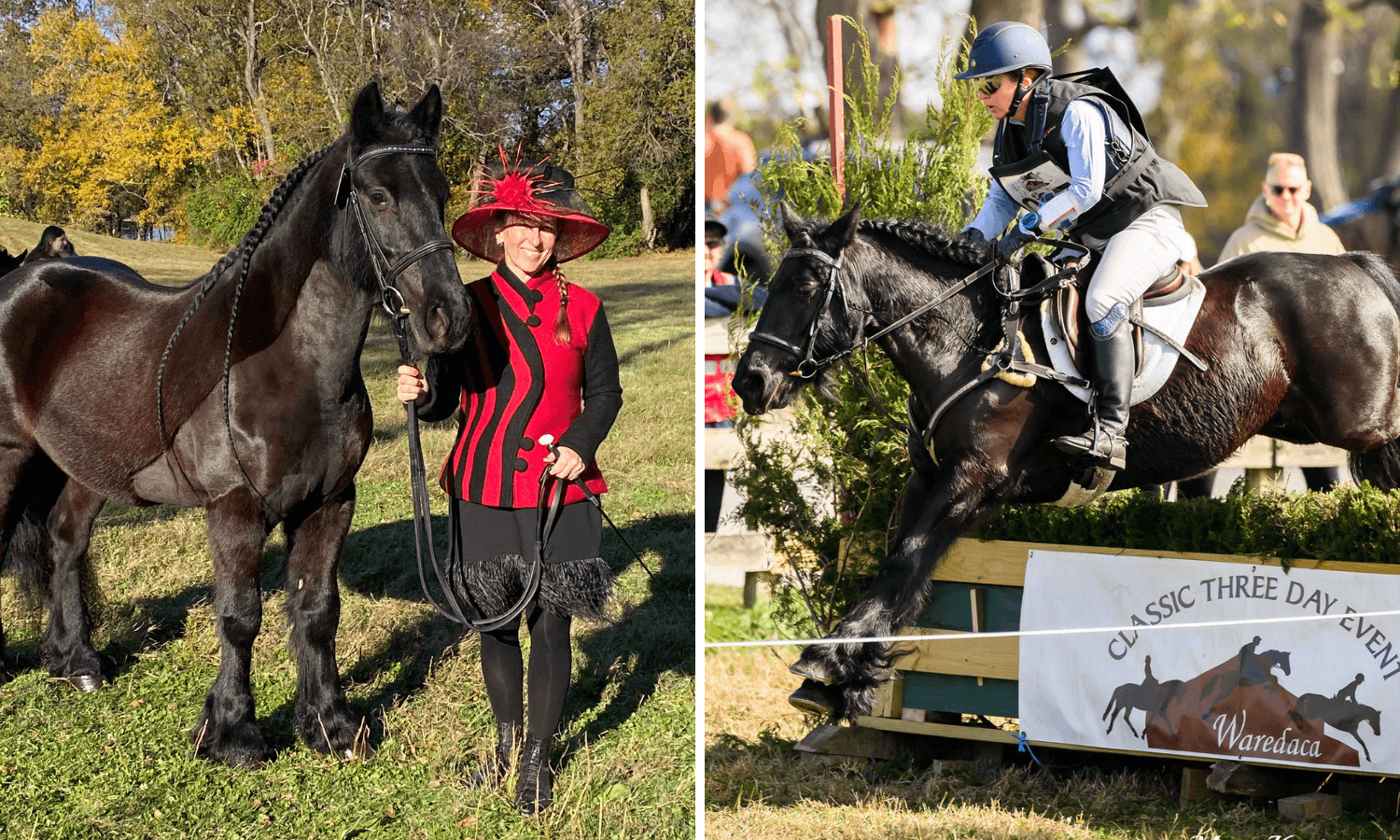“Happy Horse Equals Happy Judge”: Ask An Expert with Dressage Judge Peter Gray, Brought to You by Ride iQ

Ride iQ’s popular “Ask An Expert” series features professional advice and tips from all areas of the horse industry. One of the most-downloaded episodes is an expert session with Peter Gray, an accomplished dressage judge and Olympic eventer. He has recently judged at events like the five-star at the Defender Kentucky Three-Day Event, and he served on the ground jury at the 2022 FEI World Eventing Championships in Pratoni, Italy. His background as a competitor in the Olympic Games riding for Bermuda and as a coach and selector for the Canadian eventing team adds depth to his understanding of the sport.
Put yourself in the judge’s shoes. They must give numerical scores for movement after movement in a dressage test to give the horse and rider an accurate score for their presentation of the test on competition day. That is not an easy job. In the episode, Ride iQ co-founder McKinsey Lux digs into the thought-processes of Peter’s dressage judging.
The conversation reflects an overarching theme that in the end, dressage judging should promote the welfare of the horse. Peter’s description of his own judging philosophy highlights that he believes good training leads to good results in competition. Peter explains that building a horse’s strength and improving their suppleness—over the course of months and years—eventually leads to better performances in the show ring. For instance, Peter talks about how riders can improve their horse’s movement through training. Sometimes people think of a horse as either being a “good mover” or a “bad mover,” and if they have the latter, they believe there is nothing they can do to improve the gaits. Peter emphasizes that good riding and training can change the way the horse moves, and he suggests that working horses in a lower frame outside of competition can promote relaxation and proper muscle development.
Peter shares several anecdotes from his judging experiences, illustrating the unpredictable and sometimes humorous moments that can occur in the arena. One memorable incident involved a young rider who confidently saluted in the wrong direction at the end of her test, only to realize she had missed a movement. He also touches on the importance of maintaining a positive and respectful attitude towards horses in the ring. Peter recounts an incident where he had to intervene when a rider lost her temper with her horse during a test. He made it clear that such behavior would not be tolerated, emphasizing that a "happy horse equals a happy judge." This approach underscores the importance of welfare and sportsmanship in equestrian sports, values that Peter strongly upholds.
Peter also touches on some universally important aspects of test-riding, which apply to riders no matter their level. Peter explains that the goal of every dressage test should be to show forward, harmonious movement as well as technical correctness. Every test has at least one halt, so Peter recommends practicing halts in training. If a horse does not halt square, Peter recommends to always correct the horse by stepping them forward—never backward. Similarly, every test has transitions. Peter recommends figuring out what helps your horse achieve the best transitions, noting that sometimes having the support of the rail or corner can improve the quality of the transition. Peter also notes that it is crucial to avoid micromanaging the transition between extended and medium walk, which is where tension can often creep in. These insights highlight the importance of understanding both the technical and strategic elements of riding a dressage test, but the overarching theme is that it all comes down to good training.
What kind of frame should your horse be in for a dressage test? This is a question that many riders ask. Peter’s answer is that judges are looking for different frames at different levels of competition. Horses at lower levels (beginner novice/novice) should not be expected to show the same level of collection as those at higher levels. Although lower-level horses will not be penalized for having a higher frame, they are not expected to do so. Peter’s discussion of level-appropriate collection also ties into his discussion of corners. At the lower levels, he emphasizes that judges look for balance and rhythm in turns rather than deep corners. At the higher levels, riding more into the corners becomes more important.
In listening to this Ask An Expert episode, you will gain insights about what dressage judges are looking for when they watch you come in the ring next. From tips about how to warm up your horse to how to show off your horse when you are circling the ring waiting for your bell, this episode could even help you shave off a few points of your next dressage test.
Learn more about Ride iQ and subscribe today at ride-iq.com.















